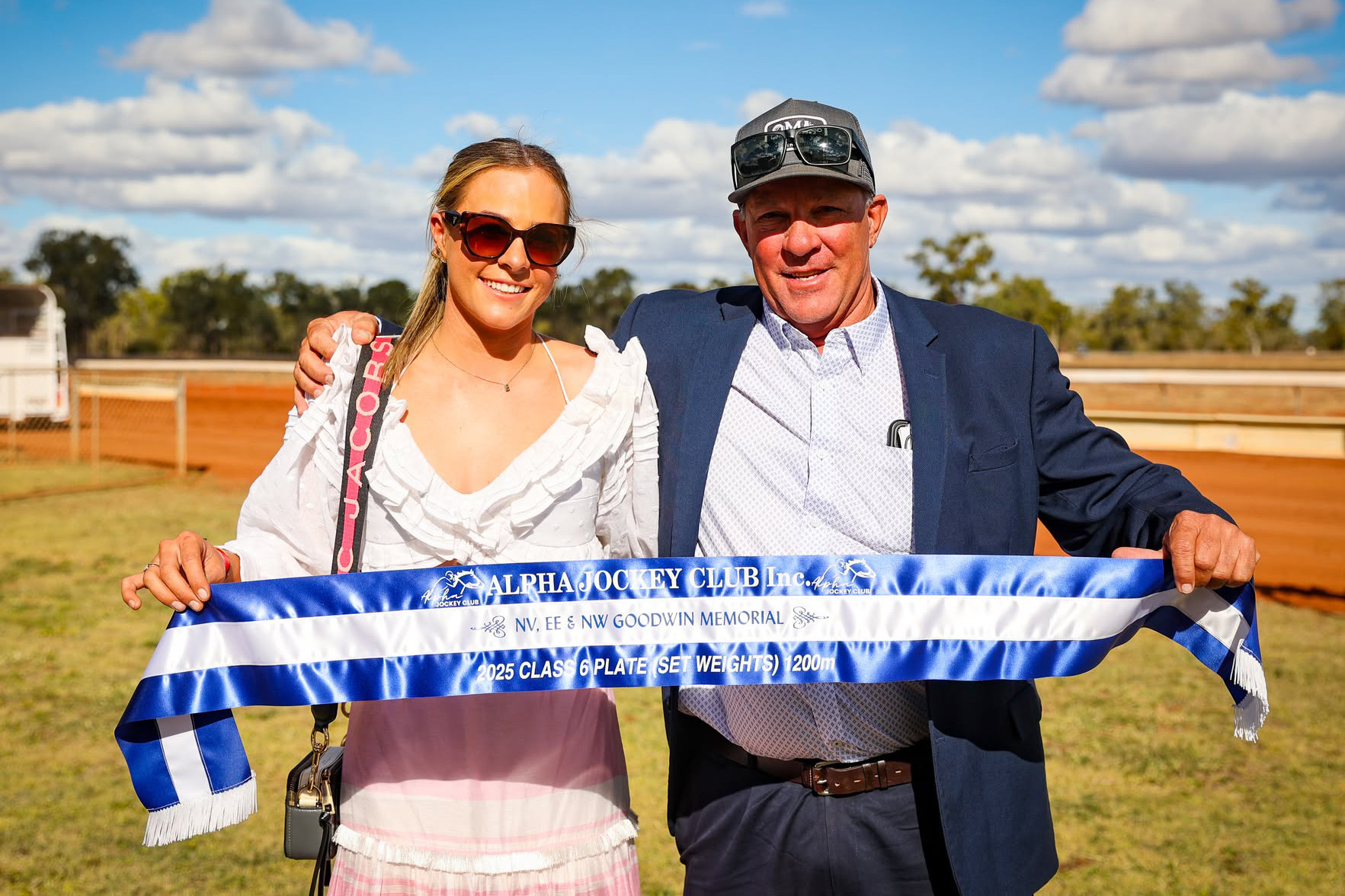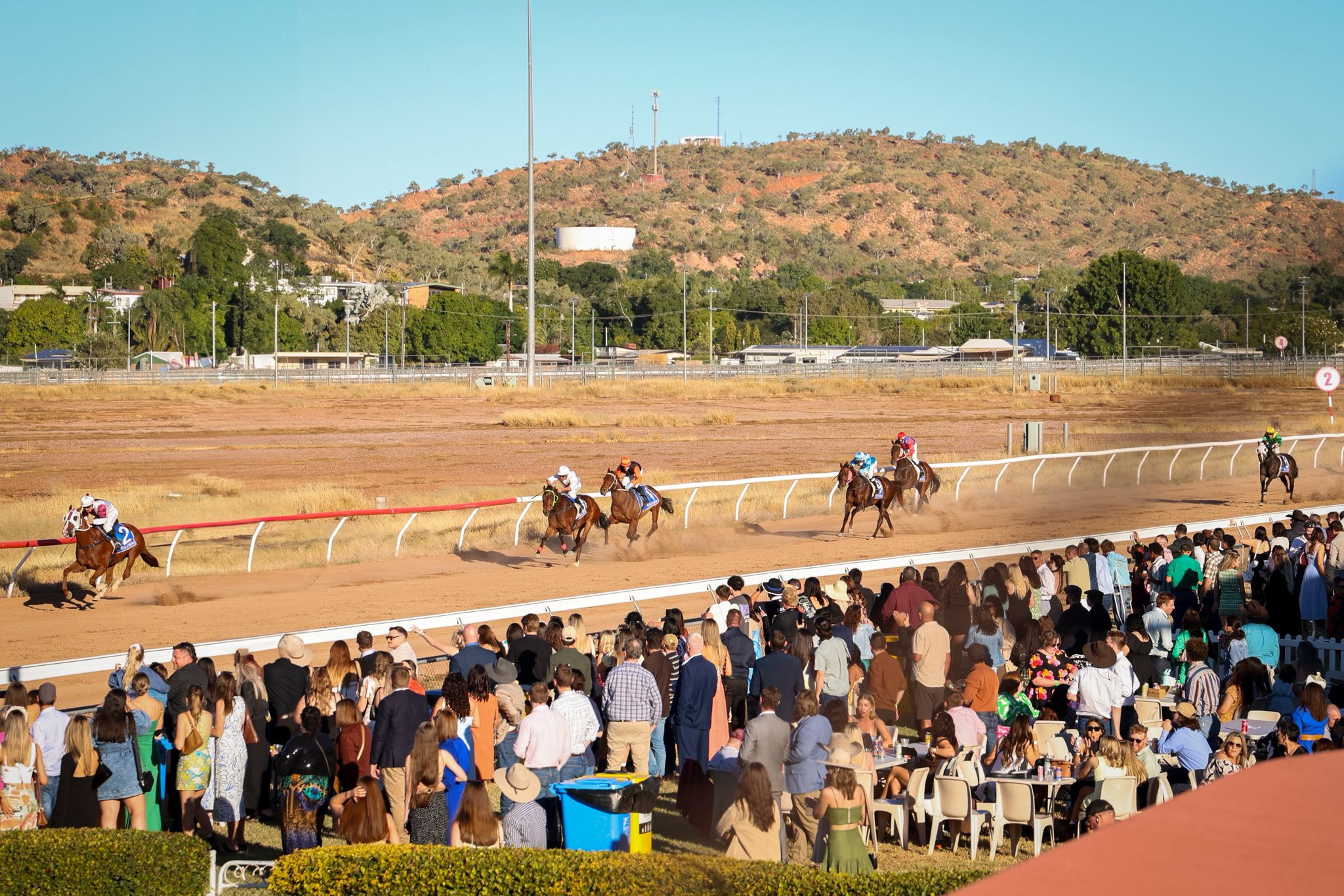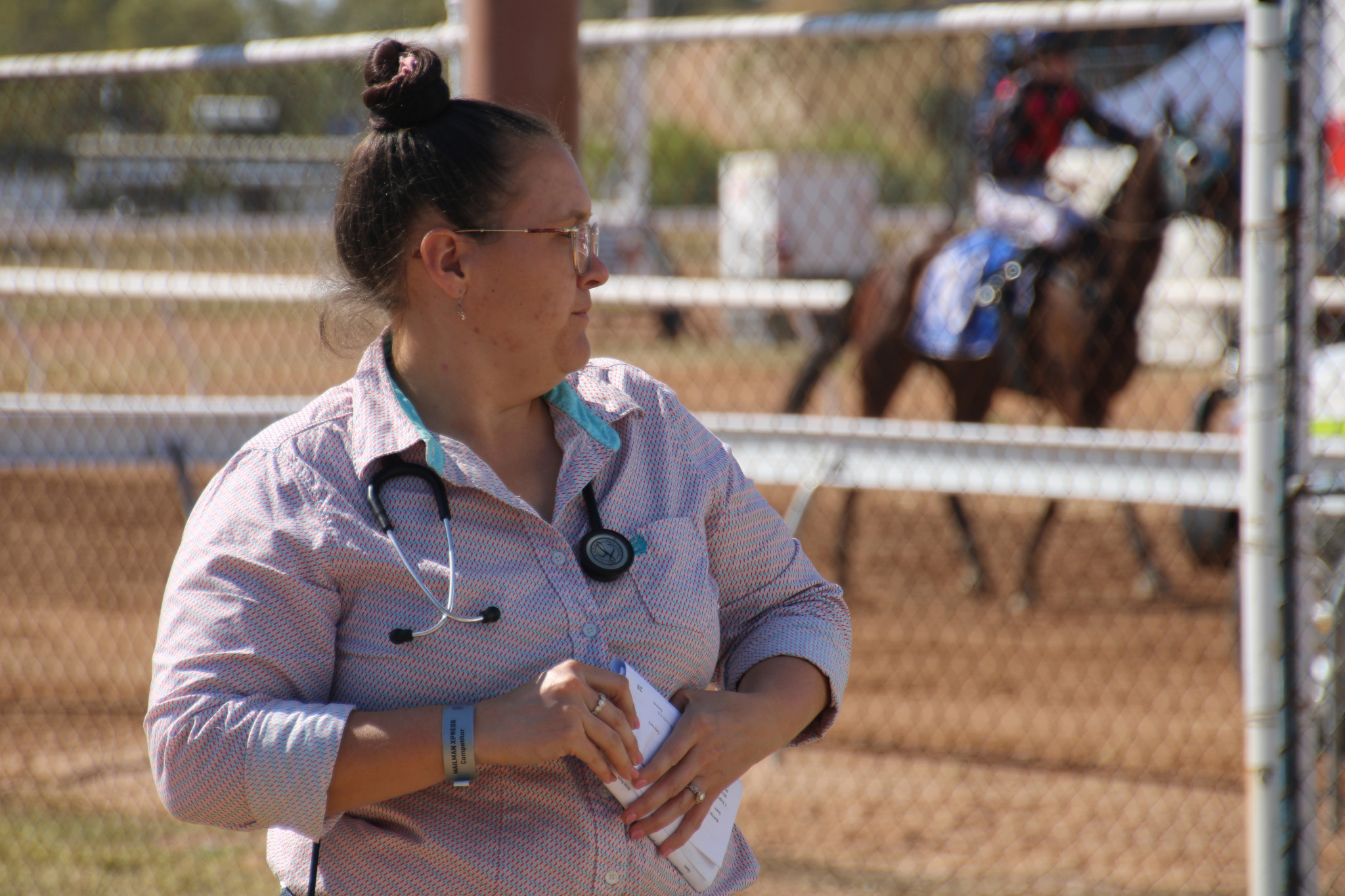Sport
30 October, 2025
Tempers flare as racing industry pushes back on heat policy
There are concerns that racing will be less viable in warmer months as the industry makes changes.

The Outback racing industry is up in arms over a change in heat policy that is taking control away from local clubs and placing it in the hands of south-east Queensland officials.
There are concerns that an already-reduced racing season will be shortened as a result of the Queensland Racing Integrity Commission’s (QRIC) new Adverse Weather Policy, which could be ratified as soon as tomorrow afternoon.
This is despite expert claims that horses rarely suffer from heat-related stress at Outback race meetings.
In fact, Mount Isa-born-and-bred veterinarian Katelyn Thompson, who has been the on-course vet at Buchanan Park for the past eight years, told North West Weekly: “I have never had to clinically treat a horse for heat stress.”
Last Saturday, meetings at Richmond and Isisford were forced to be staged between 11am and 1pm, while this Saturday’s meetings at Cloncurry and Barcaldine will also be shifted to avoid extreme temperatures (both are forecast to be 40 degrees Celsius).
The Barcaldine Racing Club was made to start at 10am, while a decision on the Cloncurry and District Race Club's starting time was not confirmed at the time of writing.
With Racing Queensland putting pressure on clubs to draw crowds to prevent the reduction of race meetings in 2026 and beyond, both the Cloncurry and Barcaldine clubs, as well as other industry leaders, believe the heat policy is going too far.
“It just becomes a COVID meeting if you start at 10am,” said Cloncurry and District Race Club president Luke Daniels of racing without crowds.
“I work out here every day and it starts to sting a bit if it gets over 45 or 46 degrees, but no one is that worried if it’s 41 or 42.
“They want to push these races through quickly but they’d be better off spacing them out to give the jockeys more time to recover between races.
“The horses are usually OK.”

North West Weekly understands that a meeting will be held between QRIC and Racing Queensland tomorrow to rubber-stamp the new policy.
No industry representatives were going to be present until enquiries made by this masthead resulted in two Country Racing Panel members getting an invitation to dial in.
North West panel representative Dan Ballard and Central West counterpart Gary Peoples will now be invited to have their say.
But the new policy is virtually a done deal, according to QRIC deputy commissioner Kim Kelly.
In an extensive interview, he confirmed that the new policy would likely be implemented within days.
“I would expect that toward tomorrow or in the early part of next week that we'd have something ready to be put up on the website and ready to be digested by industry and by the public,” Kelly said.
Racing Queensland declined to put up a representative to be interviewed.
In a statement, the Deagon-based body said: “Racing Queensland is presently providing input into the Queensland Racing Integrity Commission’s updated Adverse Weather Policy. Programming adjustments made as a result of adverse weather are done with both participant and animal welfare at the forefront.”
Barcaldine Racing Club resident Willie Chandler was less than impressed with being dictated to by south-east officials.
“These decisions are being made by someone in Brisbane with no idea,” he said on Thursday morning.
“I spoke to Racing Queensland on Monday and said there might be an issue with the heat and it was decided we would start at 12 and punch through and finish before 2 o’clock.
“That was ticked off by RQ and, within an hour, we had been ordered by QRIC to start at 10am.”

The problem for Barcaldine is that the Qantas flight lands at 11.15 on Saturday mornings. Booked on the plane were two jockeys and the club’s veterinarian.
The vet has since had to find a seat on an overnight bus to return to Barcaldine, while the two jockeys will fly into Emerald tomorrow and drive out for the meeting.
“The people on the ground should be able to make these decisions,” Chandler said.
“No one wants to put horses or jockeys at risk. But we live and work in these conditions. It’ll be hot on Saturday, but it won’t be dangerous.”
Now starting at 10am, with the last of the card to be run at noon, Barcaldine Racing Club will no longer charge a gate fee on Saturday.
“If this was your one-off race meeting, you've just got obliterated,” Chandler said.
“To me, this is all about chest pumping from Brisbane – ‘we will tell you what to do and when you need to do it’.
“We’ve been racing in the heat for 100 years and we know what we are doing. We might as well only race for six months of the year if you can’t race during the day when it gets a bit hot.”
Retired champion bush jockey Dan Ballard is on the Mount Isa Race Club committee and is the North West delegate on the Country Racing Panel.
"Where is the data? What is driving these decisions? I'm not aware of any horses succumbing to heat stress," he said.
"If we're going to be completely risk-averse, we might as well not race.
"This should be a data-driven discussion, not an emotionally-driven discussion."
Ballard said the panel was not asked to provide input into the new Adverse Weather Policy.
“There’s a lack of pragmatism with the current policy,” he said.
“As it stands, you’re required to have two vets when the heat policy is enforced. It’s difficult to adequately describe how impractical that is out here.
“We have two vet surgeries (in Mount Isa) and they alternate weekend call-outs so they don’t burn out.
“There’s probably only four or five vets in the postcode."

Ballard said he was “really proud” of the North West clubs who had been flexible and willing to change programs as a result of the current policy.
“Not only to host them, but to do things to abate concerns about heat,” he said of the measures taken by clubs to make conditions better for horses and jockeys.
“If changes aren’t made (to the policy), we’re going to be dealing with a six-month racing calendar.
“The current policy is very difficult to navigate.”
Dr Thompson said she was not approached for feedback in regards to changes to QRIC’s policy.
However, she believed there was no risk to horses from racing in the Outback’s high temperatures due to the low humidity.
“I can count on one hand the horses I’ve seen suffer from heat stress,” she said.
“I have never had to clinically treat a horse for heat stress.
“Horses are stabled in these conditions, worked in these conditions and are acclimatised to these conditions.
“I don't think the heat is the major factor – humidity is more of a factor.
“It’s rare to see high humidity out here. We might get to 38 degrees and 10 per cent (humidity). I’d be more concerned about the heat in Townsville.”

Wyandra/Cunnamulla trainer Alistair Webb is making the six-hour trip to Barcaldine on Saturday with just one horse – the in-form Mon Pierre – who is trying to earn a place in the Country Stampede Final at Doomben in December.
His jockey Matthew Gray was originally supposed to fly in on Saturday, but had to make alternative plans to get there when the meeting was shifted.
Webb believes the Outback racing scene will fall away if bush clubs are forced to race outside of regular hours.
“I think it's dumb,” he said of the 10am start.
“Clubs have got to survive. The other day, Charleville started early and finished at 2pm and everyone went home … the club lost money.
“What's the difference between 10am and 2pm? Even at 10 it’s pretty bloody hot.
“If they get their way, we’re only going to race from April to September.”
Read more: The Q&A between QRIC deputy commissioner Kim Kelly and Matt Nicholls